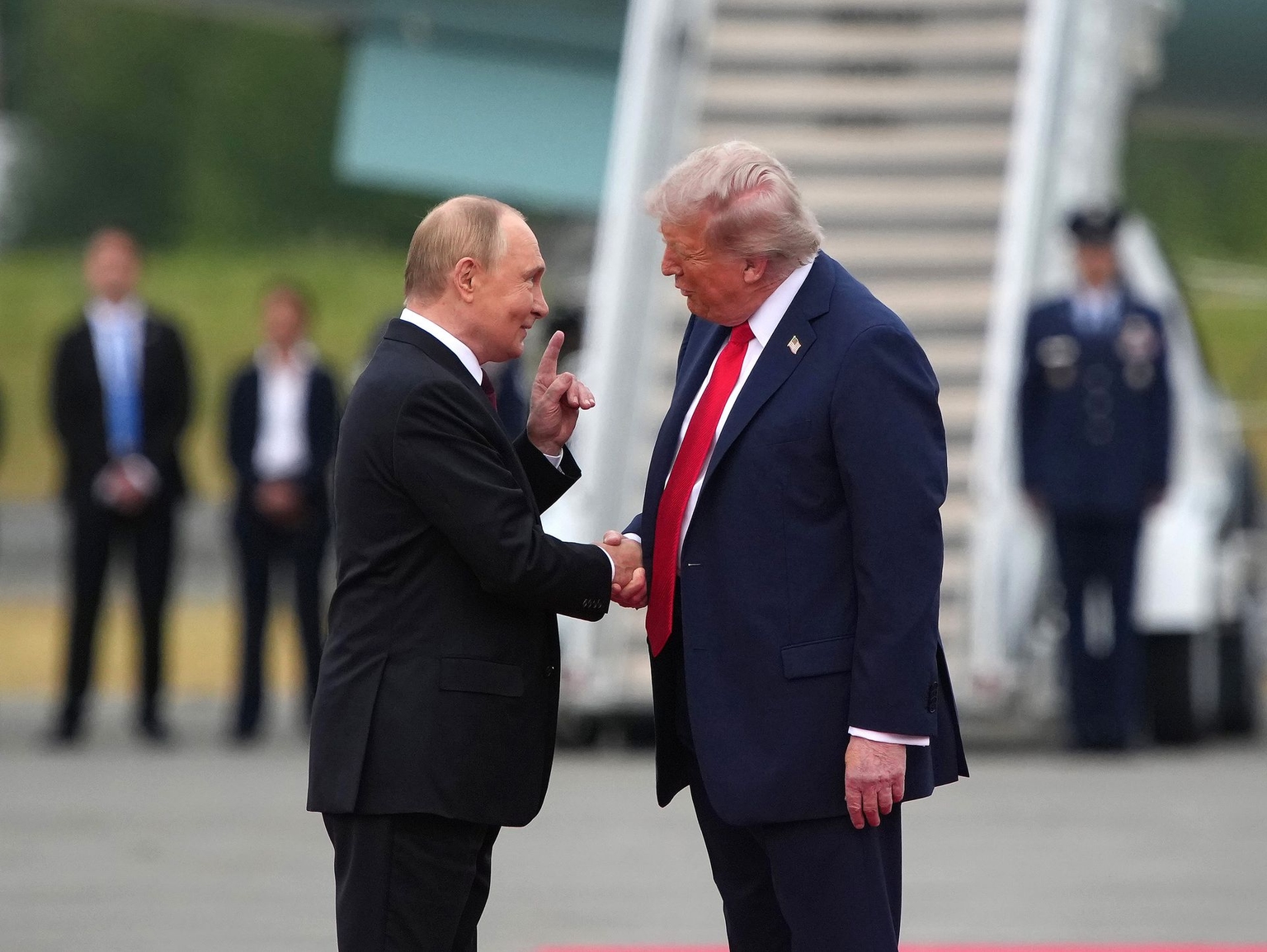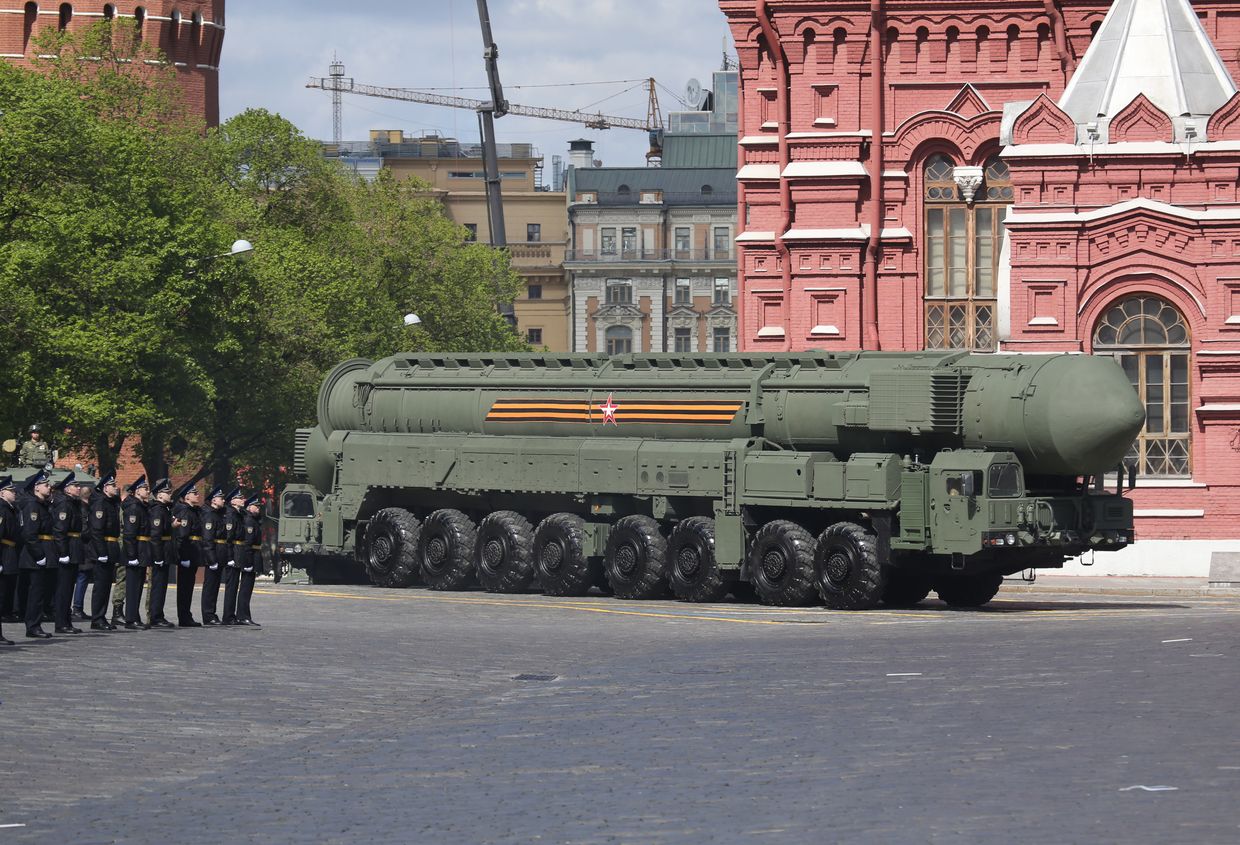Can the West win a сeasefire with Russia?

Vladimir Putin leaves the scene during the opening ceremony of the last phase of the Moscow-Saint Petersburg motorway on July 16, 2024, in Tver, Russia. (Contributor/Getty Images)

Catarina Buchatskiy
Senior Defense Innovation Director at the Kyiv School of Economics
Since 2014, every ceasefire Russia has signed has ended the same way: with Russia in a stronger position, and the West scrambling to catch up when Russia decides to escalate again.
The gap between how the West sees a ceasefire and how Russia uses one isn't theoretical. It's why Ukraine is still fighting — on a more devastating scale — a war for nearly a decade now.
The West faces a choice, but so does Ukraine. Used correctly, a ceasefire could see Ukraine rearm, the Western industrial capacity rebuilt, and NATO finally shift from crisis management to actual deterrence.
The question is whether the West has the strength, patience, and solidarity to pull it off.
The West and the appeal of a ceasefire
Over three years into the full-scale invasion of Ukraine, Western commitment has thinned. The idea of a ceasefire has become fashionable among policymakers increasingly uncomfortable with what modern peer conflict actually costs.
Policymakers now talk more about "pauses" than about real victory, and it sometimes feels like Western governments need the ceasefire for their own sake more than for Ukraine's; an exit ramp from the responsibility of defending the Western world order.
But if the West cannot sustain its commitment to an allied democracy under direct assault, where else will it find the resolve? The same voices eager to negotiate with Russia today will tomorrow wonder why authoritarian powers no longer take the West seriously.
For all the summits and communiqués, there is still no European wartime production model. Ammunition pledges are made, but delivery timelines stretch across years, not months. As for the United States, the Trump administration views striking a deal to end the war as a cornerstone of its foreign policy agenda, regardless of the position it leaves Ukraine in.
This is essentially a retreat.
The West is under the pretense that wars are deviations from the normal state of the world. In reality, wars are the tool by which authoritarian states transform the world for their own gain. When rushed and poorly crafted, ceasefires reward this behavior. They send a message: we will accept an imperfect closure rather than a victory if you stall long enough.
Western readiness for a ceasefire, or lack thereof
The primary lever of enforcement for any ceasefire arrangement will be an economic one: for the U.S. and EU, financially influencing Russia is preferable to an armed intervention. But the Trump administration remains deliberately vague about what conditions Russia must actually meet beyond "stopping the killing."
If there's no clear answer, Russia will just pocket the concessions and ignore overtures for peace.
Without any concrete definitions for what might violate a ceasefire and trigger snapback sanctions, the door is open for Russia to continue conducting gray-zone violations, including proxy operations, cyberwarfare, and sabotage with impunity.
The monitoring lever fares no better. Russia maintains its blocking power in both the UN and the OSCE. Even if monitors somehow gained approval, Russian forces would obstruct and intimidate them — as they've done in every previous arrangement. NATO peacekeepers could provide an escort, but that requires a commitment the West seems allergic to making.
Russia utilizes ceasefires as operational pauses to sustain a long-term war; while Ukraine upholds agreements and the West loosens support, Russia executes three parallel strategies.
During these "pauses," Russia rotates exhausted units, integrates new conscripts, and repairs equipment. They redeploy forces as unmarked formations, circumventing restrictions. This is why Ukrainian soldiers believe Russia's primary negotiation goal is buying time.
The myth that ceasefires halt military buildup needs to be put to rest. Russia treats every pause as a logistical surge window. After Minsk, Russia transformed occupied Crimea into an unsinkable aircraft carrier.
During these periods, Russia builds rail spurs to occupied territories, establishes ammunition depots beyond artillery range, and creates fuel distribution networks, while international observers would dismiss this as "defensive consolidation."
When conventional operations pause, Russian hybrid warfare accelerates. Information operations targeting Western unity. Cyber attacks on critical infrastructure. Energy blackmail. Political interference. Sabotage operations across Europe. Russia doesn't pause its war — it simply shifts theaters.
Resurrection or retreat?
The West must decide: treat this ceasefire as a serious security operation or admit it's orchestrating Ukraine's gradual abandonment. Half-measures guarantee failure.
Real enforcement would require automatic and severe sanctions for any violation, defined in advance, complete Russian withdrawal from all Ukrainian territory as a precondition, constant electronic monitoring backed by immediate kinetic response authorization, recognition that hybrid operations carry the same weight as conventional ones, and enforcement mechanisms ready to act within hours, not weeks.
But more than mechanisms, it requires will. The West must stop seeing ceasefires as diplomatic achievements and recognize them as military operations. Russia certainly does.
We must commit to winning this ceasefire with the same intensity you'd commit to winning a war. Russia is counting on Western fatigue and self-deception. So far, it's been a winning bet.

Editor's Note: The opinions expressed in the op-ed section are those of the authors and do not purport to reflect the views of the Kyiv Independent.












